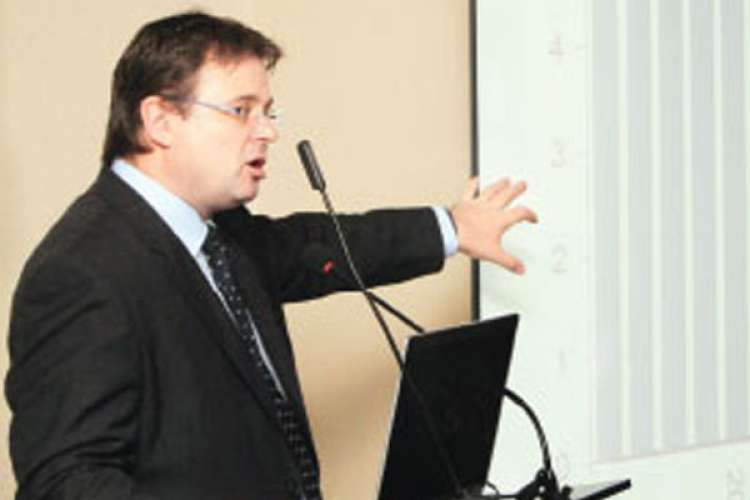Global economic forecast positive
The poor outlook of markets like the Euro have potential to affect good economic outlook in the US due to inter-regional trade, Stanlib Chief Economist, Kevin Lings says. Lings was presenting on the current challenges faced by ripple effects across continents and the opportunities that are available with the intricacies of the global economic movements.
Lings concurs with the International Monetary Fund (IMF) on the positive global economic forecast for the year 2015, with the Sub-Saharan Africa projected to grow at five percent. He however is quick to say Europe, which is struggling to stop deflation urgently needs to get better because it is a big trading partner of the world. While the US is expected to get better growth rates this year, the Euro is getting worse, with Germany slowly getting into a recession.
“Investors will have to be more conservative and careful about their mix of assets and risks,” Lings says. Currently the US remains the leading economic indicator. While oil-exporting countries are revised down, only the US has been revised up. Among the drivers of US economic growth, according to Lings, is employment creation. Lings is of the view that key to any country’s success is employment creation. “As long as you add jobs, you will grow,” he says.
The US lost 8.7 percent jobs in manufacturing during the recession, however, has since surpassed that in jobs created across all industries now. Inflation in the US is at less than two percent, and there is no pressure to raise interest rates. Lings also adds that emerging markets are not as exciting as they used to be. They are expected to grow at two percent than developed markets in the coming year. He further cautions investors to be selective, as to which emerging markets they go into. He cites China, among the BRICS countries, as one of the emerging markets that is doing well. “China is doing well, however, they need to just structure their economy because currently it is an expensive place to do business,” Lings says.
The positive outlook of the Sub-Saharan region, according to the Stanlib Chief Economist has been attributed to variables that have improved, and inflation that is under control across the region. One of the variables that have improved include the low cost of fuel due to crude oil prices that have dropped, which has led to lower cost of manufacturing. “More money is coming into Africa than leaving and there is a huge interest in Africa at the moment,” Lings says. However, his concern is that African countries do not seem to invest in themselves. This includes investors balancing the pursuit of returns in developed markets, and development of infrastructure in the domestic markets. In his view, it is important to have well diversified portfolios in order to minimise losses.
One of his recommendations is that African countries need to balance growth and development and develop infrastructure including roads, schools and legal systems. Stanlib, which operates in 10 African countries, predicts that if Botswana’s current growth is sustained, the country could double its economy in 13 years, while South Africa would do so in 35 years at the same sustained growth rate. Stanlib is a registered investment manager established in 2002. Stanlib Botswana’s parent company is one of Africa’s leading asset managers, managing assets in excess of R560 billion for over 400 000 retail and institutional clients across the African continent.
Stanlib clients are mainly institutional and corporate investors with short-term cash management and medium to long-term investment needs including retirement funds, asset management and retail investors with surplus cash to invest at regular intervals or in once off lump sum investments. Retail client comprise of individual investors high net-worth individuals, clubs, small business associations and community cooperatives.




